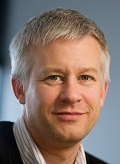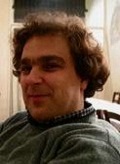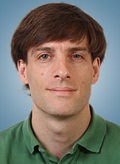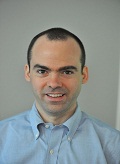Knowledge Engineering for Planning and Scheduling (KEPS)
The goal of the workshop is to promote research in the areas lying between planning & scheduling technology on the one side, and practical applications and problems on the other. Despite recent advances in the area, the performance of planning & scheduling systems is still dependent to a large extent on how problems and domains are formulated, resulting in the need for careful system fine-tuning. Knowledge engineering for planning & scheduling deals with this area, covering the acquisition, formalization, design, validation and maintenance of domain models, and the selection and optimization of appropriate machinery to work on them.
Online Proceedings (keps13-proceedings)
The KEPS workshop is scheduled on the 10th of June in the A5 room at the Department of Computer, Control and Management Engineering (DIAG), University of Rome “SAPIENZA”.
|
09:00-09:10 |
Welcome |
|
09:10-10:30 |
Mohammad Shah, Lukas Chrpa, Falilat Jimoh, Diane Kitchin, Rosimarci Basbaum, Tiago Vaquero and José Reinaldo Silva Gerhard Wickler Commentator: Roman Barták |
|
10:30-11:00 |
Coffee Break |
|
11:00-12:30 |
Simone Fratini, Nicola Policella and Alessandro Donati A Service Oriented approach for the Interoperability of Mission Planning Systems (20 min, short paper) Giulio Bernardi, Amedeo Cesta, Alberto Finzi and Andrea Orlandini Gérard Verfaillie and Cédric Pralet Commentator: Nicola Policella |
|
12:50-14:30 |
Lunch Break |
|
14:30-16:00 |
Filip Dvorak, Daniel Toropila and Roman Bartak Towards AI Planning Efficiency: Finite-domain State Variable Reformulation (25 min, full paper) Pascal Bercher and Susanne Biundo Alfonso Emilio Gerevini, Anna Roubickova, Alessandro Saetti and Ivan Serina Commentator: Lukáš Chrpa |
|
16:00-16:30 |
Coffee Break |
|
16:30-17:40 |
Asma Kilani and Lukas Chrpa Post-planning plan Optimization: Overview and Challenges (25 min, full paper) Jeremy Frank Umer Asgher Commentator: Susanne Biundo |
|
17:40-18:30 |
Discussion Panel – ICKEPS 2015 |
List of Accepted Papers
- Jeremy Frank.
What is a Timeline? - Filip Dvorak, Daniel Toropila and Roman Bartak.
Towards AI Planning Efficiency: Finite-domain State Variable Reformulation - Alfonso Emilio Gerevini, Anna Roubickova, Alessandro Saetti and Ivan Serina.
Plan-library maintenance policies for case-based planning - Gérard Verfaillie and Cédric Pralet.
A timeline, event, and constraint-based modeling framework for planning and scheduling problems - Gerhard Wickler.
Using Static Graphs in Planning Domains to Understand Domain Dynamics - Pascal Bercher and Susanne Biundo.
Encoding Partial Plans for Heuristic Search - Rosimarci Basbaum, Tiago Vaquero and Reinaldo Silva.
Requirement Analysis Method for Real World in Automated Planning Systems - Mohammad Shah, Lukas Chrpa, Falilat Jimoh, Diane Kitchin, Lee McCluskey, Simon Parkinson and Mauro Vallati.
Knowledge Engineering Tools in Planning: State-of-the-art and Future Challenges - Asma Kilani and Lukas Chrpa.
Post-planning Plan Optimization: Overview and Challenges - Simone Fratini, Nicola Policella and Alessandro Donati.
A Service Oriented approach for the Interoperability of Mission Planning Systems - Giulio Bernardi, Amedeo Cesta, Alberto Finzi and Andrea Orlandini.
A Knowledge Engineering Environment for P&S with Timelines
Call for Papers
Topics and Objectives
Despite the progress in automated planning and scheduling systems, these systems still need to be fed by careful problem description and they need to be fine-tuned for particular domains and problems. Knowledge engineering for AI planning and scheduling deals with the acquisition, design, validation and maintenance of domain models, and the selection and optimization of appropriate machinery to work on them. These processes impact directly on the success of real planning and scheduling applications. The importance of knowledge engineering techniques is clearly demonstrated by a performance gap between domain-independent planners and planners exploiting domain dependent knowledge.
The KEPS workshop attracts audience interested in bridging the above-described gap between real-life problems and planning and scheduling algorithms. Its topics include domain and problem formulations, languages, knowledge acquisition (e.g. control rules), visualization, validation and analysis of plans/domains, problem (re)formulation etc.
We seek original papers ranging from experience reports to the description of new technology in the following areas:
- formulation of domains and problem descriptions (including for example timelines, HTN etc.)
- methods and tools for the acquisition of domain knowledge
- pre- and post-processing techniques for planners and schedulers
- acquisition and refinement of control knowledge
- formal languages for domain description
- re-use of domain knowledge
- translators from other application-area-specific languages to solver-ready domain models (such as PDDL)
- formats for specification of heuristics, parameters and control knowledge for solvers
- import of domain knowledge from general ontologies
- ontologies for describing the capabilities of planners and schedulers
- automated reformulation of problems
- automated knowledge extraction processes
- domain model, problem and plan validation
- visualization methods for domain models, search spaces and plans
- mapping domain properties and planning techniques
- plan representation and reuse
- knowledge engineering aspects of plan analysis
Submissions
Two types of papers can be submitted. Full technical papers with the length up to 8 pages are standard research papers. Short application papers with the length up to 4 pages describe a particular system or an application. The papers will be presented at different sessions; the technical papers will have a standard presentation format with commentary, while the application papers will be presented in a dedicated session as a system demonstration (similar to ICKEPS system demo or ICAPS application showcase). All papers should conform to the AAAI style template (http://www.aaai.org/Publications/Author/author.php). The papers must be submitted in a PDF format via EasyChair system (http://www.easychair.org/conferences/?conf=keps13). Submissions will be reviewed by at least two referees.
Deadlines
Submission deadline (extended): April 5th, 2013
Notification: Friday, April 19, 2013
Final version: TBA
Workshop: June 10th, 2013
Workshop Program Chairs
- Roman Barták, Charles University, Czech Republic
roman.bartak@mff.cuni.cz - Simone Fratini, European Space Agency, Germany
simone.fratini@esa.int - Lee McCluskey, University of Huddersfield, UK
t.l.mccluskey@hud.ac.uk - Tiago Vaquero, University of Toronto, Canada
tvaquero@mie.utoronto.ca
Program Committee
- Roman Barták, Charles University, Czech Republic (co-chair)
- Piergiorgio Bertoli, Fondazione Bruno Kessler, Italy
- Mark Boddy, Adventium Labs, U.S.A.
- Adi Botea, IBM, Ireland
- Luis Castillo, IActive, Spain
- Amedeo Cesta, ISTC-CNR, Italy
- Susana Fernández, Universidad Carlos III de Madrid, Spain
- Simone Fratini, ESA/ESOC, Germany (co-chair)
- Antonio Garrido, Universidad Politecnica de Valencia, Spain
- Arturo González-Ferrer, University of Haifa, Israel
- Felix Ingrand, LAAS-CNRS, France
- Peter A. Jarvis, PARC, USA
- Ugur Kuter, SIFT, USA
- John Levine, University of Strathclyde, UK
- Lee McCluskey, University of Huddersfield, United Kingdom (co-chair)
- José Reinaldo Silva, University of São Paulo, Brazil
- David Smith, NASA, USA
- Tiago Stegun Vaquero, University of Toronto, Canada (co-chair)
- Gerard Verfaillie, ONERA, France
- Dimitris Vrakas, Aristotle University of Thessaloniki, Greece






